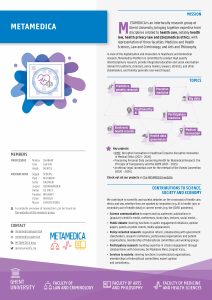DIME: Disruptive Innovation in healthcare requires disruptive innovation in Medical Ethics
2021-2026
funded by an ERC starting grant
coordinator: Heidi Mertes
involved researchers: Heidi Mertes, Seppe Segers, Michiel De Proost, Brandon Ferlito and Jesse Gray
Several recent medical innovations do not conform with the way medicine traditionally operates, but rather blur the boundaries of medicine and/or side-line the doctor-patient relationship as an essential aspect of healthcare. Examples of this are healthcare apps, direct-to-consumer genetic testing, disease surveillance, electronic patient records, telehealth and certain types of clinical decision support systems. I postulate that several of these new innovations will fundamentally change the very concept of medicine and thus turn out to be disruptive innovations.
Given that medical ethics are tailored to ‘traditional’ medicine, we should be critical about its current ability to cope with these changes and question whether the discipline of medical ethics is sufficiently equipped to guide new, disruptive innovations in healthcare towards their great potential in terms of improving patients’ access to good quality healthcare, while also safeguarding patients/users for the risks that come with them, not only in terms of health, but also in terms of infractions against firmly rooted values such as patient autonomy, the duty of care, confidentiality or privacy. If the medical ethics toolbox is ill-equipped to deal with these challenges, we urgently need to rethink or replace procedures, principles or theories in order to remedy this problem.
DIME will address these challenges by focusing on three main objectives:
(1) To establish where the most prominent ethical disruptions are located and therefore in which areas reorientations of ethical principles are most urgently needed.
(2) To develop normative arguments regarding which fundamental procedures, principles or theories in medical ethics ought to be reinforced, adapted or replaced in the face of disruptive innovations to better cope with the challenges ahead.
(3) To critically analyse the shifting moral responsibilities in healthcare as a consequence of disruptive innovations.
https://erc.europa.eu/news/StG-recipients-2020
This project was featured in Ghent University’s magazine Dare to Think.
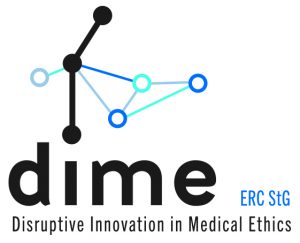
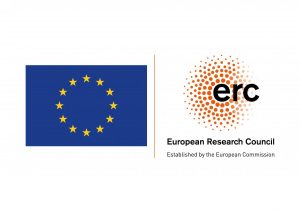
Smartphone crowdsourced medical data for biomedical research: Addressing the ethical, legal and health policy concerns
2021-2024
Funded by the FWO bilateral Flanders-Quebec projects
Involved Researchers: Mahsa Shabani (UGent), Kyle McKibbin (UGent), Pascal Borry (KU Leuven), Ma’n Zawati (McGill University), Vincent Gautrais (University of Montreal)
Smartphone applications for health are being increasingly used as a platform for collecting and sharing large volumes of crowdsourced personal health data for biomedical research and algorithm training. Consumer genetics products are similarly allowing individuals to have direct access to their own genetic data and to share such data with researchers. Using smartphone and genetic data in these ways presents numerous opportunities to expand biomedical knowledge, though it also raises certain risks. Some of these include risks to personal privacy and risks associated with unclear ethical and legal obligations on the part of app developers and researchers. In this project, we aim to mitigate these risks by determining how smartphone applications and other mobile tools that collect health data work in practice and by addressing legal, ethical, and regulatory uncertainty, comparing the situation as it exists in Canada and Belgium. We will use this evidence to develop health policy guidelines that will enable smartphone data to be used safely, in a manner that protects users and the public. In doing so, we will assure that such data will contribute to improved health outcomes by expanding biomedical knowledge and making health more effective and efficient.

Processing Personal Data concerning Health for Biomedical Research: the Principle of Transparency and the GDPR
2021-2025
Funded by Ghent University’s Special Research Fund
Involved Researchers:
Promotor: Mahsa Shabani
Co-promotors: Heidi Mertes, Tom Goffin
Researcher: Patricia Cervera de la Cruz
Development of new diagnostics tools, therapeutic devices and drugs are increasingly supported by collection and access to clinical, research and Real-World Data (RWD). Processing of personal data may fall under various lawful grounds such as consent, public interest or legitimate interest, and should be in compliance with the principles of data protection including “lawfulness, fairness and transparency”. Regardless of what is considered as the lawful basis for processing data, the principle of transparency in data protection requires data controllers to provide data subjects with adequate information about various aspects of processing. However, the questions remain about the best practices in communication of relevant information to the patients and the individuals in order to both fulfill legal requirements and meet the expectations of data subjects in this regard. In this research project, we will study the associated legal, ethical, and technical challenges regarding enhancing transparency in processing health data, and assess the adequacy of the relevant policies and mechanisms. Based on the results of this project we aim to develop recommendations to foster transparency around processing of health data for public and private scientific research.
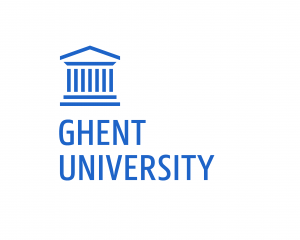
Exploring the ethical consequences of black-box medicine: Autonomy, responsibility and the prospects of explainable AI
2020-2024
funded by Ghent University’s Special Research Fund
administrative supervisor: Heidi Mertes
co-supervisors: Mahsa Shabani & Tom Goffin
researcher: Jasper Debrabander
Artificial intelligence (AI) tools in medicine are increasingly opaque. This means that it becomes very hard – or simply impossible – to understand why an AI tool generated a certain outcome given the input it received. Moreover, the most promising techniques such as deep neural networks are the most opaque as well. This makes the ethical concerns related to the resulting black-box all the more pressing. For if a patient cannot understand why the AI tool proposes a certain therapy, how can she decide upon the adequacy of its proposal? In this project we will focus on the ethical consequences of black-box AI tools in medicine in terms of autonomy, informed consent, shared-decision making and responsibility. Firstly, the literature is undecided with regard to the precise nature of the ethical problems arising from these black-box tools. Hence our first goal is to clarify how specific AI tools might problematize autonomy and related ethical concepts. Secondly, the nascent scientific field of explainable artificial intelligence (XAI) develops techniques to foster (post-hoc) explanations for what happened in the black-box. Therefore we can ask which specific requirements these explanations should meet in order to solve the ethical problems we identified. In order to do this we will combine the bio-ethical literature on black-box AI, the literature in the philosophy of science on explainable AI and the corresponding scientific literature. Ultimately, we hope that our research will attribute to the development of a fine-grained ethical discussion about black-box AI in health care and constructively guide the development of the scientific field of explainable AI.

An ethical-legal conceptual core for the renewal of the Oviedo Convention
2020-2024
funded by Ghent University’s Special Research Fund
administrative supervisor: Tom Goffin
co-supervisors: Heidi Mertes & Mahsa Shabani
researcher: Sofia Palmieri
The Council of Europe’s 1997 Convention for the Protection of Human Rights and Dignity of the Human Being with regard to the Application of Biology and Medicine (the so-called ‘Oviedo Convention’) is the main human rights instrument in the field of healthcare. It provides a legal framework to protect human dignity and identity in the field of biomedicine and, in particular, patients’ rights. As pointed out on the 20th anniversary of the Oviedo Convention, since 1997, several societal and technological changes that challenged biomedical practice have occurred, impacting the Oviedo Convention. In particular, the Convention may need to be re-read and perhaps revised to offer proper and precise protection to human dignity with regard to healthcare technologies. Human rights in biomedicine, as enshrined in the Oviedo Convention, form an essential condition for a trustworthy regulation of new technologies in healthcare. However, the Convention in its current version seems to be no longer fit for purpose. Regardless of the statement, there is a lack of clarity in explaining why the current Oviedo Convention is no longer fit for purpose and what challenges medical AI poses to its text. Therefore, this research aims to respond to the lack of clarity about the reasons that make the Oviedo Convention and its underlying principles unfit for purpose in the light of legal challenges posed by medical AI and to create an ethical-legal recommendation for renewing the Oviedo Convention’s normative framework.

Can citizens make the difference in bioethics? A critical approach to public engagement
2020-2024
funded by Sciensano
administrative supervisor: Heidi Mertes
co-supervisors: Wannes Van Hoof (Sciensano)
researcher: Chloé Mayeur
This research project evaluates the influence citizens have on bioethical principles through public engagement projects. This influence includes the significance they assign to values they supported in genomics, for instance, privacy, which can be different from the interpretation given by experts. Various ethical and philosophical theories will be needed to determine the validity of the values expressed by citizens, such as normative theories, wide reflective equilibrium, empirical bioethics and social contract theory.
The practical part investigates whether public engagement projects produce helpful, original and innovative results for policymakers, experts and other stakeholders. It will answer the following questions: what is the added value of public engagement projects in genomics? Do they influence policies in practice? If not, how should they influence policies from an ethical point of view?

20th anniversary of the Belgian Act on Patients’ Rights: how to make patients’ rights future proof
2021-2023
funded by Vlaams Patiëntenplatform
administrative supervisor: Tom Goffin
researcher: Paulien Walraet
The Belgian Act on patients’ rights will soon be celebrating its 20th anniversary. Through seven basic patients’ rights, this Act established the legal position of the patient in relation to his healthcare professional. Since its entry into force, we have been faced with many new challenges in the field of healthcare, broadening the spectrum in which the patient receives healthcare, leading to new legislation, case law and stakeholder opinions that have a direct or indirect impact on this Belgian patients’ rights framework. More than ever, it’s essential to empower the patient through a shared-decision-making, to let him make an informed choice in the healthcare market, make him a part of health policy making, respect the privacy of the patient in high-quality healthcare and to provide him with redress-options if something goes wrong. In other words: to achieve through a dynamic patients’ rights framework a person-centred health system. Nevertheless, the Act on patients’ rights has until this date not undergone any fundamental changes. Also, little to no substantial academic research has been conducted on the transformation of the concept of patients’ rights into a health policy strategy. In this project, we therefore aim to evaluate the Belgian Act on patients’ rights and to make the patients’ rights frameworks future proof and sustainable as patients’ values within a strategy to achieve a person-centred health system.
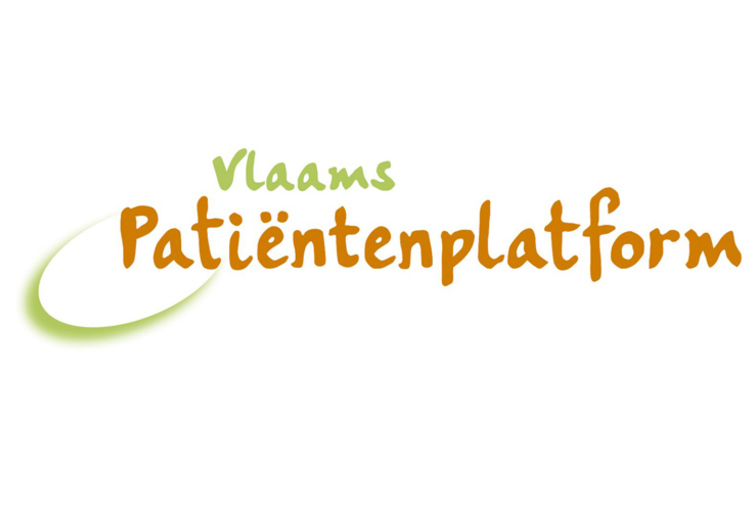
Management of (suspected) harmful mutations in (sperm) donor conception: current practice, stakeholder experiences, ethical analysis and good practice recommendations
2022-2026
funded by FWO-Vlaanderen
administrative supervisor: Heidi Mertes
co-supervisor: Sandra Janssens
researcher: Dorian Accoe
Although basic genetic screening is an integral part of the sperm donor screening process in assisted reproduction, sometimes (suspected) harmful mutations are discovered after the donation, either in the donor or in donor-conceived persons. It is important that a system is in place that facilitates the reporting and registration of (suspected) conditions, can trace at-risk persons, enable communication when necessary and block donor sperm samples either conditionally, or completely. Although such systems are in place in Belgium, there is currently no transparency about current practices, no knowledge about the experiences of different stakeholders confronted with this unexpected genetic information and no thorough normative framework outlining the rights and responsibilities of the different parties involved. Also, there are no
good practice guidelines for clinics and sperm banks confronted with these problems.
This research project is a necessary and much overdue first step in filling these knowledge gaps through empirical research and ethical
reflection, which will contribute to a normative framework within which clinics and sperm banks can operate when managing (presumed) harmful mutations in sperm donors.

